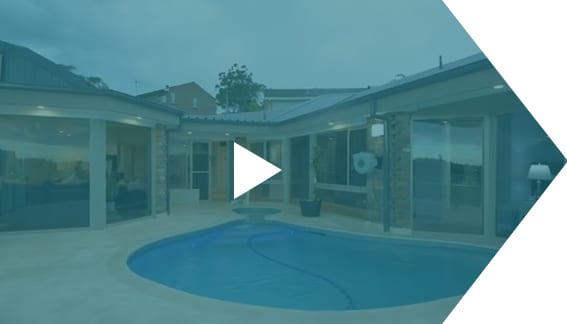The allure of a renovated home is undeniable – a fresh, modern space that perfectly reflects your style and needs. However, embarking on a home renovations Sydney can be daunting, especially if you’re a first-time renovator. Navigating the complexities of permits, contractors, and budgets can easily lead to costly mistakes.
To help you avoid common pitfalls, we’ve compiled a list of the most common home renovations Sydney mistakes based on real-life experiences and expert advice:
1. Underestimating the Costs
This is perhaps the most common mistake. Renovations often have hidden costs, from unexpected structural issues to changing design plans. Home renovations Sydney projects can quickly balloon beyond your initial budget.
Solution:
- Create a detailed budget: Factor in every possible cost, including materials, labour, permits, and contingency for unforeseen circumstances.
- Get multiple quotes: Don’t settle for the first quote you receive. Compare prices from several reputable contractors to ensure you get a competitive price.
- Factor in inflation: Construction costs fluctuate constantly, so it’s crucial to account for inflation when planning your budget.
-
Not Hiring the Right Contractor
Choosing the right contractor is essential for a successful renovation. While many builders can handle various construction projects, choosing a general contractor who doesn’t specialise in home renovations can lead to problems. A reputable contractor will have experience, be insured, and communicate effectively throughout the project.
- Inaccurate Quotes: Inexperienced builders might underestimate the job’s complexity, leading to an initial quote that’s too low. This can translate to shortcuts and lower-quality work later as they try to make up for lost profits. Conversely, they might inflate the quote significantly to cover their uncertainties, making comparing prices with other builders hard.
- Delays and Inefficiency: Without specific experience in first-floor extensions, the builder might struggle with the most efficient workflow. This can lead to a project that drags on for much longer than anticipated, causing inconvenience and potentially impacting your budget.
- Missing Equipment: First-floor extensions often require specialised tools and materials, like tarpaulins for rain protection. An inexperienced builder might lack this equipment, putting your home at risk of water damage during construction.
Solution:
- Thorough research: Get recommendations from friends, family, and online reviews.
- Check credentials: Ensure the contractor has the necessary licenses and insurance.
- Sign a detailed contract: The contract should outline the scope of work, timeline, payment schedule, and dispute resolution procedures.
-
Lack of Communication with the Contractor
Poor communication can lead to misunderstandings, delays, and even disputes. Ensure you’re communicating your expectations clearly and regularly.
Solution:
- Schedule regular meetings: Discuss progress, address concerns, and ensure everyone is on the same page.
- Maintain open lines of communication: Don’t hesitate to contact your contractor with any questions or issues.
- Document everything: Keep detailed records of conversations, emails, and meeting notes for future reference.
-
Not having the design approved by a structural engineer
Adding significant weight, like a second-floor addition, to your existing home can have disastrous consequences. Without a thorough evaluation by a qualified structural engineer, you’re gambling on the stability of your entire structure. Here’s why consulting an engineer is crucial:
- Hidden Weaknesses: Your existing house may have unseen weaknesses that can’t be detected by simply looking. An engineer can identify potential issues like foundation cracks, inadequate framing, or worn-out materials that could struggle to support the extra weight.
- Code Compliance: Building codes exist to ensure structural safety. A structural engineer will ensure your addition adheres to these codes, preventing future problems and potential delays during permitting.
- Peace of Mind: Knowing a professional has assessed your project and vouched for its safety is invaluable. This peace of mind lets you focus on the exciting aspects of creating your dream addition.
Solution:
Get your builder to collaborate with a structural engineer experienced in first-floor extensions. This professional will perform a comprehensive evaluation, including:
- Site Inspection: Thoroughly examine your existing foundation, framing, and overall structure.
- Design Review: Analysing the proposed addition’s plans to ensure compatibility with your existing home’s capabilities.
- Recommendations: Provide solutions to strengthen your existing structure or modify the addition’s design to meet safety requirements.
Crucially, ensure this service is included in your builder’s initial quote. This transparency avoids unexpected expenses and guarantees your project starts on a solid, safe foundation.
-
Ignoring Building Regulations
Ignoring building regulations can result in fines, delays, and even legal action. It’s vital to understand and adhere to all applicable regulations.
Solution:
- Obtain necessary permits: This ensures your renovation complies with local building codes.
- Consult a building inspector: They can guide you through the process and ensure your project meets safety standards.
- Read and understand the building code: Familiarise yourself with the regulations for your specific project.
-
Using a builder who is not properly insured
Hiring a builder without proper insurance exposes you to a significant financial risk. Here’s why it’s a critical mistake:
- Unforeseen Issues: Construction projects are inherently unpredictable. Accidents can happen, materials can be faulty, and unexpected complications can arise. Without proper insurance, you’ll be left holding the bag for repairs, injuries, or even unfinished work.
- Hidden Liabilities: Even minor mistakes during construction can have major consequences. Leaks, structural problems, or code violations could result in costly legal battles or repairs if the builder is uninsured.
Solution:
Protecting yourself from financial disaster starts with ensuring your builder is properly insured. Here’s what you need to do:
- Required Coverage: In many regions, builders are legally required to carry specific types of insurance, such as:
- Home Warranty (may vary by location) – protects you from faulty workmanship for a set period.
- Workers’ Compensation – covers medical expenses and lost wages for injured workers.
- Public Liability Insurance – protects you and others from injuries caused by the construction project.
- Builder’s All-Risk Insurance – protects the builder from damage to materials or completed work.
- Proof of Coverage: Don’t just take their word for it. Request a Certificate of Currency directly from the builder’s insurance company. This document verifies their current coverage and specific policy details.
- Ask Questions: Don’t be afraid to ask about insurance coverage. Understand the limits of each policy and inquire about any exclusions that might apply.
By requiring proper insurance from your builder, you safeguard your investment and ensure peace of mind throughout the construction process.
-
Overlooking the Design Phase
Rushing the design phase can lead to costly mistakes later on. Invest time in planning, creating detailed drawings, and considering different options.
Solution:
- Consult an architect or designer: They can create a functional and aesthetically pleasing design.
- Explore different layouts and finishes: This will help you visualise the finished space and avoid costly changes.
Get feedback from family and friends: Their opinions can help refine your design and ensure it meets your needs.
-
Using a builder who is not trained in preventing water penetration
Building a home or undergoing renovations is a big project; water damage can quickly turn your dream into a nightmare. Here’s why choosing a builder who isn’t trained in preventing water penetration is a critical mistake.
- Exposure During Construction: Your exposed roof and foundation are vulnerable to rain during construction. An inexperienced builder might not take proper precautions, leading to water leaks that damage framing, insulation, and interior finishes.
- Hidden Problems: Improper waterproofing during construction can lead to hidden issues that may not surface for months or even years. Water intrusion during the building process can cause mold growth, structural damage, and rot.
Solution:
Selecting a builder who prioritises water protection is key to a successful project. Here’s what to look for:
- Waterproofing Expertise: Ask about the builder’s experience with waterproofing techniques and materials. Look for builders familiar with current best practices for flashing, membranes, and drainage systems.
- Protection Plan: Before signing a contract, discuss the builder’s plan for protecting your project from the elements. This should include using heavy-duty tarps during roof removal, installing a temporary one-piece waterproofing membrane, and ensuring proper drainage around the foundation.
- Proactive Communication: A good builder will keep you informed throughout construction. Ask questions about how they address potential water entry points, and be sure to understand the waterproofing materials they plan to use.
Choosing a builder who prioritises water protection can avoid costly repairs and delays and ensure a dry and healthy home for years to come.
-
Not Accounting for Delays
Unexpected delays are common during home renovations. Be prepared for potential setbacks and build in buffers for your schedule.
Solution:
- Communicate with your contractor: Discuss potential delays and establish a contingency plan.
- Be flexible: Understand that delays are inevitable and adjust your expectations accordingly.
- Maintain open communication with your contractor: Stay informed about any issues that may cause delays.
-
Cutting Corners on Quality
Trying to save money by using cheaper materials or hiring unqualified contractors can lead to costly repairs and long-term dissatisfaction.
Solution:
- Invest in quality materials: Choose durable materials that will last for years.
- Hire experienced and reputable contractors: Don’t compromise on quality for price.
- Get multiple quotes and compare prices: This will help you find the best value for your money.
-
Believing there will be no disruption to your lifestyle
Thinking your life won’t be disrupted during a home renovation is a recipe for frustration. Here’s why assuming a smooth, business-as-usual experience is a mistake:
- Construction Chaos: Building projects are inherently messy and noisy. Dust, debris, and constant activity will inevitably disrupt your daily routine. Access to areas of your home may be limited, and noise levels can make working from home or getting a good night’s sleep challenging.
- Unforeseen Delays: Construction projects rarely run perfectly on schedule. Material delays, weather disruptions, or unexpected complications can all lead to extended timelines.
Solution:
A realistic approach to potential disruptions is key to a successful renovation. Here’s how to minimise the impact on your life:
- Honest Communication: Discuss your expectations and lifestyle needs with your builder upfront. A good builder will create a plan that minimises disruption, such as scheduling noisy work for specific times of day.
- Temporary Accommodations: Consider temporary living arrangements depending on the project’s scope. This could involve renting an apartment for a few weeks or setting up a livable space within your home with limited access to affected areas.
- Embrace Flexibility: Be prepared to adapt your daily routine. Working from a coffee shop, scheduling dinners out, or having a designated “clean zone” in your home can help maintain some normalcy.
By openly discussing potential disruptions and working with your builder to develop a mitigation plan, you can minimise the impact on your daily life and ensure a smoother renovation experience.
-
Ignoring the Importance of Functionality
While aesthetics are important, prioritise functionality when designing your renovation. Consider how you will use the space and ensure it meets your needs.
Solution:
- Think about your daily routines: How will you move through the space? Where will you store your belongings?
- Maximise storage: Utilise every inch of space to create a functional and clutter-free home.
- Consider accessibility: Ensure your renovation is accessible for everyone in your household, including those with mobility challenges.
-
Failing to Plan for the Post-Renovation Phase
The renovation process doesn’t end when the work is complete. You must plan for post-renovation tasks like cleaning, furniture placement, and settling in.
Solution:
- Schedule a deep clean: This will remove dust and debris from the construction process.
- Plan furniture placement: Decide where to place your furniture before it arrives.
- Allow time to unpack and settle in: This will allow you to personalise your newly renovated home.
Frequently Asked Questions
Q: What are the most common hidden costs associated with home renovations Sydney?
A: Hidden costs can include unexpected structural issues, changes in design plans, material shortages, labour shortages, and permit fees.
Q: How can I find a reputable contractor for my home renovation Sydney?
A: Get recommendations from friends and family and read online reviews. Check credentials, read testimonials, and ask for references.
Q: What should I include in a home renovation contract?
A: The contract should outline the scope of work, timeline, payment schedule, materials, warranties, dispute resolution procedures, and cancellation policies.
Q: How long should a home renovation Sydney take?
A: The duration of a renovation depends on the scope of work, the availability of materials and labour, and any unexpected delays.
Q: What is the best time of year to renovate Sydney?
A: The best time to renovate is during the cooler months (spring and autumn) when weather conditions favour outdoor work.
Conclusion
Renovating your home in Sydney can be a rewarding experience. You can ensure a smooth and successful renovation process by avoiding common mistakes and following these tips. Remember to plan carefully, communicate effectively, and focus on quality. Your dream renovation can become a reality with meticulous planning and a positive attitude.
Call us today on 02 97363344 or contact us online for a free consultation.












